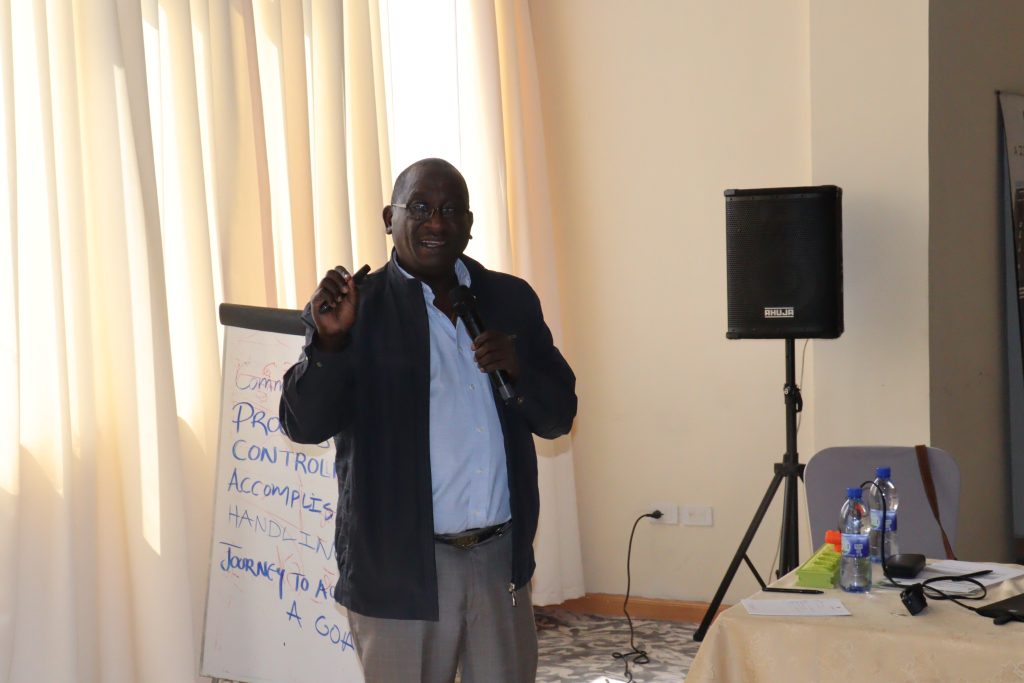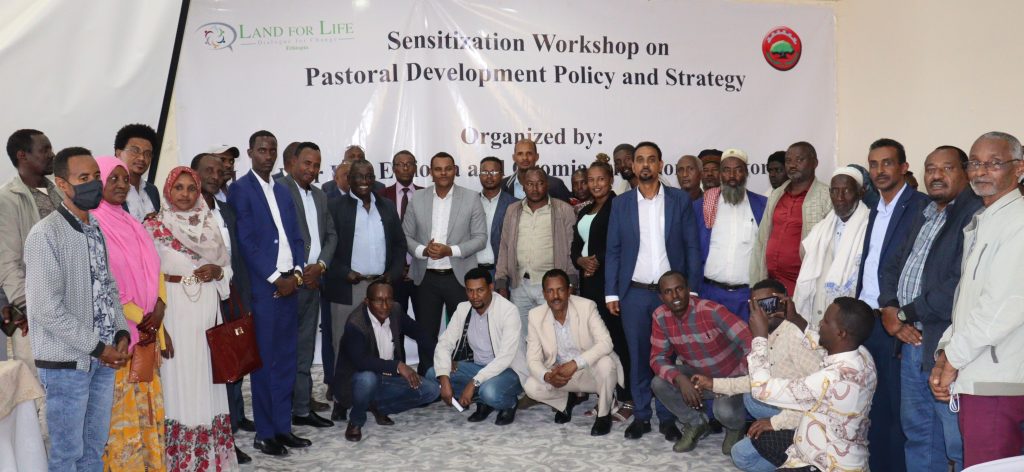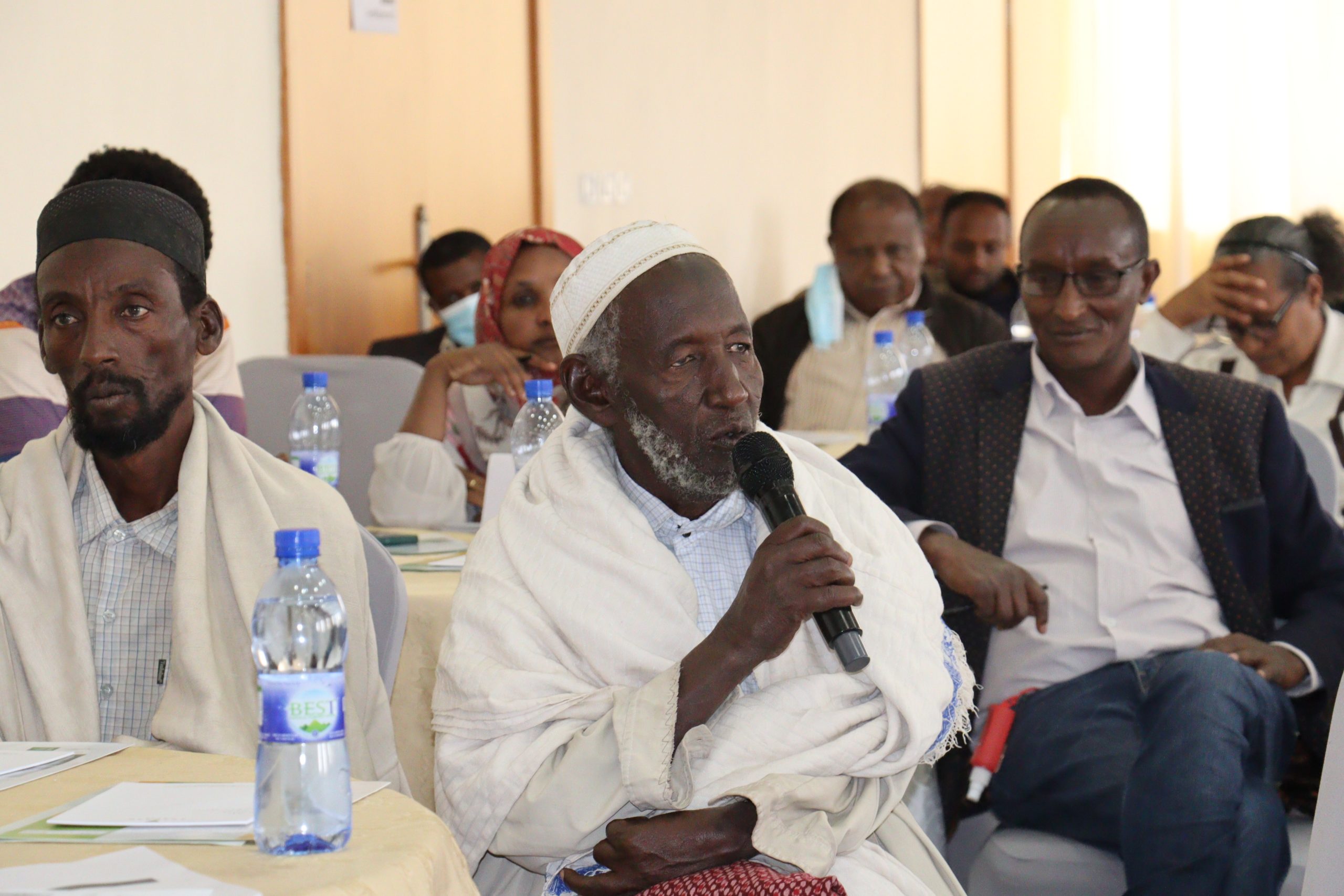The pastoral development policy and strategy sensitization workshop was conducted on Saturday 14th May 2022 at Azzeman Hotel, Addis Ababa. The workshop brought together more than 70 participants (policymakers, academics, development practitioners, civil society organizations, representatives from eight Oromia regional pastoral zone heads, and communities and media houses) to deliberate on the pastoral development policy and strategy and Oromia regional pastoralism context. The workshop is organized in collaboration with Oromia Irrigation and Pastoralist Development Bureau.
The sensitization workshop started with a keynote address, providing an overview of the LfL-Ethiopia’s Pastoralist Technical Working Group (TWG) and set talking points for the day’s event, by Waktole Tiki (Ph.D.), TWG Coordinator, followed by elders’ blessings reflecting the honor of pastoral development in Oromia territories – zones, woredas, and special intervention areas.
Opening remarks were also delivered by the guest of honor, Ato Abera Aba- Director, Directorate of Regional and Pastoral Areas Support Coordination from the Ministry of Irrigation and Lowlands
Two papers were presented on the conceptualization and knowledge of the FDRE Pastoral Development Policy and Strategy, and diagnosis of the existing opportunities and gaps of the Oromia Pastoralism Context, which was followed by participant’s discussion on the pastoral development policy and project implementation issues, emerging from dialogue and interaction among workshop participants, and identity the next course of action.
Right after the workshop opening ceremonies (i.e., introduction of the event, blessing by elders, keynote address, and opening remarks by the workshop organizers and the guest of honor respectively) are completed, Shanko Delelegn provided a brief overview of the Pastoral Development Policy and Strategy document; His presentation was displayed in three main parts – the “raison d’être” of the policy design, policy framework with its pillars, and implementation strategies.
The second paper was presented by Ato Roba Torche (Deputy Bureau Head of Oromia Irrigation and Pastoralist Development Bureau) and the presentation was focused on the regional pastoralism context, issues, and challenges. It entails- conceptual definition and salient features of pastoralism, factors of development of pastoralist areas, core achievements of last year in the pastoral area of the Oromia Region, and strategic issues for consideration.

© Mulugeta, Land fort Life Ethiopia
After the two papers’ presentations, the floor was opened for a participant’s discussion and a lot of inputs were forwarded. The discussions addressed pertinent elements and contextual issues of pastoral development policy and strategy, and Oromia pastoralism issues and challenges, considering the country’s cross-sectoral policy and legislative frameworks, lifestyles of the pastoral communities and their natural resources, ecological and environmental dimensions, and synergies and inter-linkages between sectors and initiatives across the subject area. Many concerns were raised. Among others, participants portrayed their perspectives on the presentations; especially representatives from eight zones addressed pertinent concerns of the pastoralists, men, women, and youth and elders.
The workshop ended with a concluding session to summarize the workshop takeaways and what is considered the key messages for the continuing work of both the LfL-Ethiopia and OIPDB, as well as to agree on the way forward regarding the partners’ role in the implementation of the PDPS.
Ato Roba addressed concerns and provided confidence for participants in setting norms, procedures, and standards for participatory and inclusive operations, and requested full involvement of multiple stakeholders to provide appropriate logistics, continuous capacity development supports for regional and local/community-based institutions engaged in the business of pastoral development.

06. June 2022
by Mulugeta Gadissa

